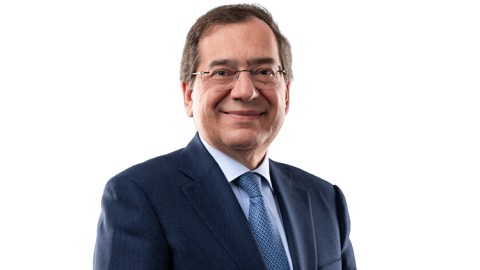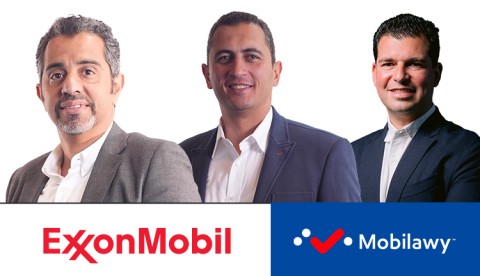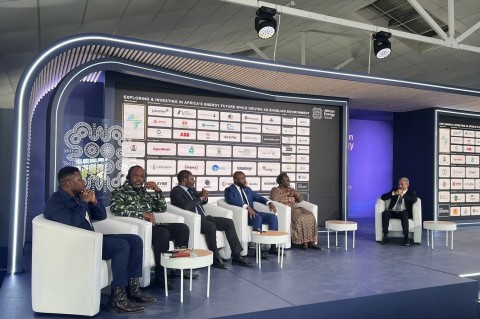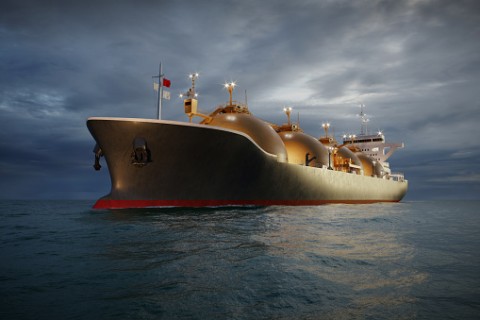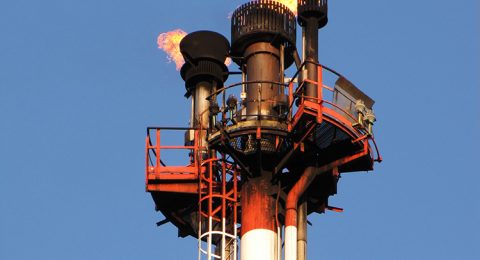In the global chess game of energy, international relations tend to have the first hand. When looking into the power of the Eastern Mediterranean region, one cannot side-step the central role of Cyprus. In an effort to steer away from Egypt’s angle of the equation, Egypt Oil & Gas conducted an interview with Nicholas Papadopoulos, the Presidential candidate of Cyprus and the Head of the country’s Democratic Party.
Furthermore, Papadopoulos chairs the parliamentary committee for Finance and Budget; and he is the son of former President Tassos Papadopoulos.
Please highlight to our readers a brief about the core points you intend to focus on as the future president of Cyprus?
My vision for Cyprus is diametrically opposed from that followed by the present administration and not only over the core issue of resolving the Cyprus Question. I believe in the creative powers of my people and the establishment of an investment friendly environment that would help us to recover from the catastrophic consequences of the 2013 bail-in program that ransacked one of the most competitive sectors of our economy. I want to restore the competitiveness of our economy that goes far beyond the banking sector and energy is major part of this plan.
Beyond the economic sector, Cyprus needs to also restore its international and diplomatic credibility. I have a very clear position on Turkey and the Cyprus issue and I will use all leavers available to the Republic of Cyprus at the EU as well as the regional level to confront Turkey’s imperialist objectives.
Mr. Erdogan sees his country as a revisionist and expansionist power that treats the Eastern Mediterranean as an Ottoman lake. He has no respect for international law other than the interpretation he gives to it and is building up a huge military capability which he intends to use in order to coerce his neighbors into submission.
He has been occupying 1/3 of my country, he has placed his troops illegally in Syria and Iraq, and has been officially questioning the validity of the Lauzanne Treaty which defined the borders between Turkey and Greece in 1923.
Since 2011 and more emphatically since 2016 he has regressed from any democratic reform, he has persecuted the political opposition and the country’s ethnic and religious minorities and has all but breached his relationship with the EU.
More importantly for the region, Mr. Erdogan has chosen to side himself and his country with extremist political forces who have disseminated dissension and instability throughout the Middle East and is offering a safe haven even to terrorist organizations such as the Egyptian Muslim Brotherhood.
I intend to stand up to Mr. Erdogan. I cannot trust him or his intensions and I will discontinue the appeasement policies followed by the current President and his predecessor. Their appeasement strategies have failed to resolve the Cyprus Question, they have made Turkey more aggressive and more recalcitrant and are severely damaging the credibility and international standing of the Republic of Cyprus.
How do you view the cooperation between Egypt and Cyprus in terms of energy and investment? And in your opinion, what needs to be changed? how can both countries collaborate to enhance their benefit from the natural gas in the deep Mediterranean area?
We need, and by “we” I mean the Cypriot leadership, to get serious about what we want to achieve and how we want to achieve it. We have been talking about energy cooperation for a very long-time but I have not seen any real and tangible progress either in the natural gas or electricity sectors. The government of Mr. Anastasiades has been passive and procrastinating partly because elements within his administration are deluded by the argument that Ankara will change its policy vis-à-vis Cyprus if we export our gas to Turkey.
It has no clear direction and this creates questions about its credibility and determination to move forward with its declared energy cooperation with Egypt. On the other hand I am clear about what I am proposing. I will never build a pipeline to Turkey. I want to build a direct pipeline connecting the Aphrodite discovery with the Damietta LNG plant so as to liquefy and export 90% of the field’s recoverable reserves to international markets. Aphrodite has enough net export capacity estimated to almost 110 bcm to fully book Damietta’s liquefaction potential for 17 consecutive years.
In your opinion, what is the outcome expected from the trilateral summit in November?
Unfortunately, I do not expect anything concrete to come out of this meeting.
What are the major challenges Cyprus faces in its energy sector?
Cyprus has one of the most vulnerable and environmentally unfriendly energy systems in the EU. We are dependent on foreign oil imports for 92% of our energy supply and electricity consumption, although we have a lot of untapped wind and particularly solar energy potential. Cyprus is completely isolated from its neighbors and the European Union.
The Aphrodite gas field would help us to significantly reduce the cost of fuel oil imports and modernize our energy system by building new infrastructure for the benefit of all Cypriots, Turkish Cypriots included. Unfortunately, the size of our future gas demand it too small to make the development of the field economically viable just for our domestic consumption. In order to get the 10% of Aphrodite’s reserves we need for our internal demand we have to export the other 90% to Egypt.
Moreover, our electricity market is still controlled by an essentially state-subsidized monopoly. Regardless of how effectively this monopoly is, our electricity market cannot grow if we do not inject it with new capital and new investment that will help modernize and expand our fleet of electricity plants, secure our energy supply and make Cyprus into a major electricity exporter and transit hub.
For this to happen, Cyprus has to connect as soon as possible with high voltage electricity cables with both Egypt and Israel and later on with Greece and the EU. Promoting the pipeline to Damietta and the construction of these electricity interconnectors will be at the top of my agenda starting on March 1st 2018.
Upon winning the coming elections, how do you see future cooperation with Egypt, in different fields? What are the main areas you will focus on?
The historical ties between our two countries go back to before the independence of Cyprus from British colonial rule. Cypriot workers participated in the construction of the famous Suez Canal and many families, including part of my family, worked and prospered in Egypt during the previous century.
President Nasser was a strong supporter of Cyprus’ emancipation struggle and Egypt was one of the very few countries in the world which supported that struggle from a moral as well as a practical point of view and President Makarios was a dedicated member of the non-aligned movement that President Nasser helped to forge and lead for several decades.
After the Turkish invasion of 1974, Egypt has been one of the most principled supporter of Cyprus in its continued struggle for liberation from the Turkish occupation and I am very happy to note the renewed interest of Egypt in the Cyprus question over the last few years, the most intractable problem of international security, second only to the Palestinian Question.
Our relationship has survived the test of time and has been recently rekindled and expanded in the face of great regional uncertainty and unprecedented volatility. The high-level tripartite cooperation summits between Cyprus, Egypt and Greece established in 2014 constitute the linchpin of a new emerging regional cooperation which is a pillar of stability and security for the entire Eastern Mediterranean.
This framework of synergies founded on the principle for the respect of international law also constituted the basis for the establishment of other tripartite initiatives as well as the ones between Cyprus-Greece on the one hand and Jordan, Lebanon and Palestine on the other that followed in 2016, offer us a fruitful framework to deepen and broaden that cooperation in all aspects of our relationship.
If elected in February 2018, I want to reassure you that I am going to continue and further encourage this enhanced tripartite partnership by taking more practical steps towards tangible results, especially in the energy and regional security sectors that will highlight the importance of Egypt especially in the eyes of the European Union.
Apart from the energy sector, I will enhance and deepen our security and military cooperation by, inter alia, conducting common exercises with Greece as well as other EU countries who will see Cyprus as a strategic base of operations within the evolving framework of the EU’s PESCO (Permanent Structured Cooperation) on Defense.
I will also welcome Egyptian investment in any sector of our economy, from tourism and construction to banking and real estate while promoting joint education and research programs by utilizing existing EU and Union for the Mediterranean (UfM) financial capabilities.


